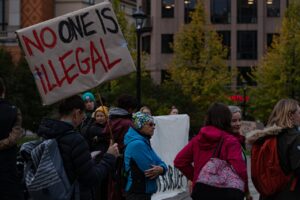Elon Musk: Gray Areas from Early Journey in the U.S.
A Controversial Start in Silicon Valley
Elon Musk’s early years in the United States have come under scrutiny due to a recent release from The Washington Post. South Africa born billionaire Musk, now known for companies like Tesla and SpaceX, have reportedly worked in the U.S. illegally during the 1990s when he first ventured into the tech industry. The report reveals that in 1995, Musk arrived in Palo Alto, California, with intention of attending Stanford University but, his focus quickly shifted and instead of enrolling into a university, he founded Zip2, a startup that he eventually sold for around $300 million in 1999.
Since then, Musk refers to his transition from student to an entrepreneur as a “legal gray area”. He explained in a 2020 podcast that, although he was in the U.S. legally, but he was technically only authorized for student work. Musk’s legal team has declined to comment on the recent report.
Experts Weigh in on the Legal Implications
As per immigration law experts quoted by The Washington Post, Musk’s status may have fallen into a legal gap. Foreign students are required to remain enrolled in a full course of study to maintain valid authorization under student visa rules. Musk, however, did not pursue his graduate studies and instead channeling his efforts into building a company. A move that, while entrepreneurial, likely placed him outside the boundaries of his visa.
Leon Fresco, a former immigration litigator with the U.S. Department of Justice, stated that individuals in similar situations could find themselves in legal trouble. Fresco also noted that working for a revenue-generating entity, even if unpaid or indirectly could violate visa terms. “If you’re facilitating revenue, like designing code or attempting to make sales, then you’re in trouble”, he explained.
The Changing Landscape of Immigration Policies in U.S.
Time when Musk’s student-entrepreneur issue occurred was in an era with less stringent regulations around visa than today. As The Washington Post highlighted, before 9/11 the rules governing student visas were more relaxed. While it was still technically illegal, many individuals remained in the U.S. despite overstaying their student visas. without facing deportation.
Trump’s administration implemented measures to curb both legal and illegal immigration, framing migrants as a threat to security of U.S. And also made immigration a center of his platform, promising deportation of illegal immigrants, if reelected. Musk endorsed him in the upcoming Presidential elections.

Representational image only (Maciej Prus – Pexels.com)
A Clash of Narratives: Musk, Trump, and the Immigration Debate
The Musk-Trump alliance recently gained more hype with Musk announcing reward of $1 Million for signing a petition in favor of Trump. Read more here about it. Musk has been vocal in his stance on immigration, yet this recent revelation of his own history as an “illegal worker” has drawn strong reactions from political leaders. President Joe Biden recently commented on Musk’s early days in U.S., calling it hypocritical for Musk to now support anti-immigration rhetoric. Speaking at a campaign event in Pennsylvania, Biden remarked, “The wealthiest man in the world turned out to be an illegal worker here when he first came to this country.”
Biden’s comments echo a growing public debate on the complexities of immigration law and the opportunities or challenges that any foreign-born entrepreneurs face in U.S. Despite his own history, Musk’s endorsement of Trump, who has called for strict policies to control immigration, adds yet another layer of intrigue to the story.
The Gray Area of Innovation and Immigration
Musk’s entrepreneurial drive transformed him from a student visa holder to the CEO of multiple billion-dollar enterprises, but his early journey also raises questions about the hurdles international students face. For many, Musk’s success is a testament to the value of welcoming skilled innovators, while critics argue that his path illustrates the challenges of enforcing immigration rules fairly and consistently.
As Musk’s role in both politics and technology continues to evolve, his early years journey in U.S. serves as a reminder of the complexities involved in pursuing the great American Dream. Especially for those navigating the fine lines of immigration policies. The question remains: will Musk’s story fuel discussions on immigration reforms, or will it become a footnote in the broader debate on immigration and innovation in America?
Related Reads:
Elon Musk’s Bold Play: Cash Giveaways, Conspiracies, Promises of Government Overhaul

